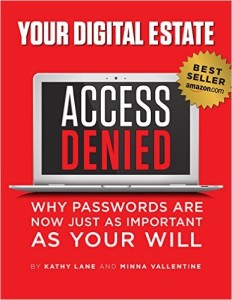 The answer may seem obvious. You, or your designated agent make this decision. You have prepared a living will and left instructions for your agent to follow or, if you are still able to speak for yourself, you tell the doctors what you want.
The answer may seem obvious. You, or your designated agent make this decision. You have prepared a living will and left instructions for your agent to follow or, if you are still able to speak for yourself, you tell the doctors what you want.
In Texas, this is not true. Because of the Texas Advance Directives Act, a hospital ethics panel – not you or your family – decide whether to end care!
Last October, Evelyn Kelly learned this the hard way. Her son, David Chris Dunn, a 46 year old former county sheriff had entered Houston Methodist Hospital, transferred from Bayshore Medical Center in Pasadena. He had a mass on his pancreas and was in renal failure.
He’d been intubated for a month and the doctors had kept him sedated so he wouldn’t disturb the tube in his throat. Dunn couldn’t verbally respond to questions but he followed his mother’s movements with his eyes and he could nod in response to his mother’s questions.
One day, the chairman of the hospital’s Bioethics Committee told Ms. Kelly that the doctors had met and decided it was time to end David’s medical care. The hospital ethics committee was going to meet in 48 hours to make its final decision. Ms. Kelly had made it clear that, as a born-again Christian, she wasn’t going to take her son off of life support.
“From Kelly’s standpoint, every second her son lived was a reason for hope, but for the doctors, it had meant weeks of treating a man who wasn’t showing any signs of improvement beyond simply having a pulse.”
Chris Dunn died in December 2015.
“In Texas, it doesn’t matter what instructions you’ve previously given or what your relatives say: If you’re in critical condition, you’re dependent on machines to survive and hospital officials decide it’s time to pull the plug, you will die. And it’s completely legal.”
It’s rare for a patient’s case to end up before a hospital ethics committee only because most patients die before the process is completed. However, when it does, it’s very difficult to stop the process based on a law signed by George Bush in 1999.
There are several other cases that have been reported. Here’s one that happened in 2005 when Zee Klein’s 91 year old mother, Edith Pereira, was taken to the Texas Medical Center with a urinary tract infection. She had brittle diabetes and had gone blind from the disease but her heart and lungs were in good shape, she could still feed herself and she was fairly lucid most of the time.
The family was focused on getting the infection under control so didn’t argue when a doctor put Pereira on a dose of morphine that would keep her unconscious, and thus unable to eat and regulate her blood sugar. When the medical team told Klein they wouldn’t install a feeding tube for her mother, Klein had a problem. One of the doctors told her “ We feel that your mother’s spirit is telling us she wants to die!”
Klein was dumbfounded. She managed to have her mother transferred to another hospital where she lived for about six months before dying.
Be sure you know what’s legal in your state and be prepared. For more information about advance healthcare directives and living wills, go to www.diesmart.com.
 Last year, a comprehensive law was proposed by the National Conference on Uniform State Laws. That law places access to a wide range of digital assets on a par with access to traditional tangible assets.
Last year, a comprehensive law was proposed by the National Conference on Uniform State Laws. That law places access to a wide range of digital assets on a par with access to traditional tangible assets.



